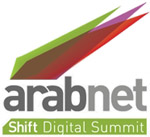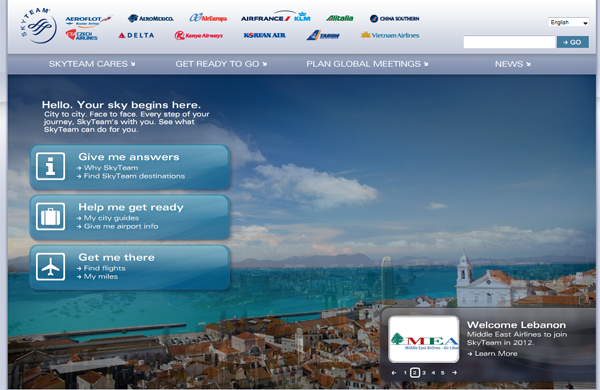Solanum Lycopersicum

 When was the last you sent a text message (SMS), question asked to smartphone users. Maybe some are still using SMS when connecting with people who are not into sophisticated phones, the smart ones.
When was the last you sent a text message (SMS), question asked to smartphone users. Maybe some are still using SMS when connecting with people who are not into sophisticated phones, the smart ones.
So basically the industry of SMS will come to an end or at least see itself shrinking, except for companies who still believe that this is a cheap marketing tool and keep in feeding your phone with crap messages about shoes sales, valentine flowers, and so on… and most of the messages end up being deleted and most of the time, before even reading them.
But it seems that eventually the SMS market still have some potential. It has been estimated by the International Telecommunications Union that 6.1 trillion SMS messages were sent in 2010. That’s over 16.7 billion messages per day. 696 million messages per hour. 1.16 million messages per minute. And 193,429 texts in a second.
So who is replacing this niche business? It is called Mobile Instant Messaging.

The smartphone users are invaded by mobile instant messaging apps and they are built for almost all mobile platform, but not unified till now and not everyone uses the same IM client, so still this needs to be fixed by app builders.
I am not quite sure if mobile IM will be as profitable as SMS, but it will take the mobile service providers many years to work this out until data access becomes as cheap as sending an SMS and until all users are playing with smartphones.
For business travelers, still email is the #1 tool to send one to many messages, to avoid high roaming costs, plus almost all mobile IM requires to sign-in (except BBM and that is why it’s still the No.1 threat) and users tend to forget signing in every time they turn on their mobile phones.
Until SMS comes to an end, let us wait and see new mobile IM apps emerging and the latest news in this sector was the Facebook acquisition of Beluga for an undisclosed amount.
 To know more about what is happening in the mobile platforms and applications, consider visiting the ArabNet 2011 Shift Digital Summit, from March 22-25, in Beirut-Lebanon, which will draw over 1,000 attendees and 80 speakers from around the world. It will include a Developer Day (March 22), Two Forum Days (March 23 & 24), and a Community Day (March 25).
To know more about what is happening in the mobile platforms and applications, consider visiting the ArabNet 2011 Shift Digital Summit, from March 22-25, in Beirut-Lebanon, which will draw over 1,000 attendees and 80 speakers from around the world. It will include a Developer Day (March 22), Two Forum Days (March 23 & 24), and a Community Day (March 25).
 AFISE, the French Association for soaps, detergents and cleaning products, which includes all major market players, has launched an initiative to its members to take action on their sustainable development in order to reduce the environmental impact of standard liquid detergents.
AFISE, the French Association for soaps, detergents and cleaning products, which includes all major market players, has launched an initiative to its members to take action on their sustainable development in order to reduce the environmental impact of standard liquid detergents.
Manufacturers have till June 2011 to offer their standard liquid detergents in concentrated form. This will lead to pass a needed dose of 110 ml to 75 ml per wash.
 Unilever France is the first player to make that change and will launches its new format in March 2011. 5 liter bottles have been replaced by 3-liter bottles for a number of washes identical (about 40) and 3-liter bottles go well in 2 liters for 26 washes.
Unilever France is the first player to make that change and will launches its new format in March 2011. 5 liter bottles have been replaced by 3-liter bottles for a number of washes identical (about 40) and 3-liter bottles go well in 2 liters for 26 washes.

The new bottles will be available on Skip, Omo and Persil brands.

 The ArabNet 2011 Shift Digital Summit, the largest gathering for the Arab web/mobile industry, will be kicking off with a Developer Day on March 22, targeted at engineers, developers, and techies from across the region. It will include programming case studies, tutorials, and in depth workshops by lead engineers from top regional and global companies. Some of the topics that will be discussed include developing mobile apps for different platforms like Google’s Android and cross-platform development frameworks like Appcelerator’s Titanium.
The ArabNet 2011 Shift Digital Summit, the largest gathering for the Arab web/mobile industry, will be kicking off with a Developer Day on March 22, targeted at engineers, developers, and techies from across the region. It will include programming case studies, tutorials, and in depth workshops by lead engineers from top regional and global companies. Some of the topics that will be discussed include developing mobile apps for different platforms like Google’s Android and cross-platform development frameworks like Appcelerator’s Titanium.
The day will also include talks on popular content management systems like WordPress as well as user interface and user experience issues. These subjects and more will be taken up by speakers from various leading companies from the region and beyond such as Cleartag, eSpace, Zedna, BORN Interactive, and Google. At the end of the day, attendees will have the opportunity to take part in exciting competitions and Sprints to develop applications to grow the Arabic web.
The Two-Day Forum, which will take place on March 23 and 24, will include discussion panels, keynotes, 1-on-1 interviews, workshops, and rapid-fire Q &A sessions, as well as the yearly Ideathon and Startup Demo competitions for entrepreneurs. This year’s Forum will focus on the latest trends and technologies in Social and Mobile, the hottest developments in the web industry.
Some of the topics that will be covered are the Mobile Application Landscape, Social Media and Marketing, Social Commerce, E-Payment Challenges and Solutions, Social and Mobile Gaming, Online Media Buying, Streaming Media, Digital Content, and Tech/Mobile for Good. Speakers include top executives from Microsoft, Google, TechCrunch, Seedcamp, Meydan, Aramex, Sarmady, Intigral, Groupon, Effective Measure, Ericsson, Ideavelopers, Souktel, Travian Games, Nokia, Communicate, The National and many others.
Exciting developments for the Ideathon competition include a prize of two weeks worth of development services offered by eSpace to the top three ideas to help them build prototypes.
For more information, please visit the ArabNet 2011 Shift Digital Summit website.
They are everywhere on the internet and trending worldwide. Everybody wants to be in this business called “Deal Of The Day” and clones are popping up in every county but still the biggest player is Groupon.
 The idea for Groupon was created by now-CEO and Pittsburgh native Andrew Mason. Groupon is a deal-of-the-day website (also called group buying) that is localized to major geographic markets worldwide. Launched in November 2008, the first market for Groupon was Chicago, followed soon thereafter by Boston, New York City, and Toronto. As of October 2010, Groupon serves more than 150 markets in North America and 100 markets in Europe, Asia and South America and has amassed 35 million registered users.
The idea for Groupon was created by now-CEO and Pittsburgh native Andrew Mason. Groupon is a deal-of-the-day website (also called group buying) that is localized to major geographic markets worldwide. Launched in November 2008, the first market for Groupon was Chicago, followed soon thereafter by Boston, New York City, and Toronto. As of October 2010, Groupon serves more than 150 markets in North America and 100 markets in Europe, Asia and South America and has amassed 35 million registered users.
In October 2010, Yahoo! was rumored to have offered over $3 billion to acquire Groupon.[26] On November 30, 2010, it was reported that Google offered $5.3 billion with a $700 million earnout to acquire Groupon and was rejected on December 3, 2010. After the rejection of the Google/Groupon buy-out, Groupon was identified as a possible candidate for an initial public offering by 2013.
Before its expansion into the MENA region (Middle-East & North Africa) with its launch of Groupon UAE on March 1st 2011, already 2 companies were up and running, trying to cover the region before the arrival of the big player.

Both companies are based in Dubai, UAE. Gonabit is backed up by Bayt.com and Cobone by Jabbar Internet Group.
In my opinion, both of them are waiting for a buyout offer from Groupon based on their users database and turnover (which is not known), but I am not sure if Groupon itself is interested in such offering after their arrival into the region.
 Specially that Cobone site is not showing any deal-of-the-day and that is a bad sign for a service who said it will offer its users or any potential web surfer a daily offer. I never registered for both sites, even they both had/have appealing offers for Lebanese consumers but when I decided to write this blog post, I was really disappointed seeing a “coming soon” sign.
Specially that Cobone site is not showing any deal-of-the-day and that is a bad sign for a service who said it will offer its users or any potential web surfer a daily offer. I never registered for both sites, even they both had/have appealing offers for Lebanese consumers but when I decided to write this blog post, I was really disappointed seeing a “coming soon” sign.
Unfortunately Gonabit and Cobone did not manage to be present in all major capitals of the MENA region before the arrival of Groupon, so the race is on with the only difference between the 2 local players and the American giant, the cash flow.
Surely Groupon will handle the game in a more aggressive way trying to drag the local players down on their knees in order to get them out of the market.
CEOs of Gonabit, Cobone & Groupon M.E., Dan Stuart, Paul Kenny & Faisal Haq will be present in Beirut between the 22nd and 25th of March for the Arabnet Shift Digital Summit. So let us wait to hear from them about it.
Mirbach Schmolzi Design is an owner-managed brand design agency in Hamburg-Germany, developing creative design strategies and their implementation for national and international managed brands and private labels – since 1995.
Below is a selection of their beautiful work, visit their website here (in German)




















Middle East Airlines – Air Liban (MEA), the flag carrier of Lebanon, signed an agreement to join SkyTeam in 2012. MEA will be the alliance’s second member from the Middle East, a strategic growth market for SkyTeam.
More information here
